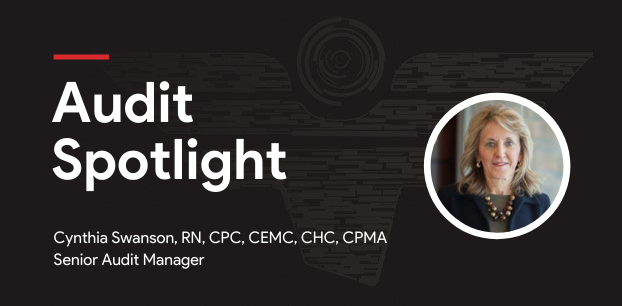
Audit of hospital inpatient care uncovers coding errors and over-inflated hospital charges
Background
ClaimDOC’ s comprehensive line-by-line auditing of healthcare claims uncovers errors that basic claim repricing and auto-adjudication does not catch, leading to greater savings to health plans and beneficiaries. Our Audit Team analyzes all types of claims for a variety of potential concerns including excessive usual and customary charges, duplication of claims, correct coding edits, the accuracy of reported codes, unbundling of services, and others. Our claims review is not intended to impact care decisions or medical practice.
In this Claims Audit Spotlight, we focus on hospital inpatient care. Medicare and many commercial health plans reimburse acute care hospital services under an inpatient prospective payment system (IPPS). Base payment rates are set prospectively for inpatient stays based on the patient’s diagnosis and severity of illness. Subject to certain adjustments, a hospital receives a single payment for the case based on the payment classification assigned at discharge. The law requires the Centers for Medicare and Medicaid Services (CMS) to update payment rates for IPPS hospitals annually and to account for changes in the prices of goods and services used by these hospitals in treating patients, as well as other factors. The IPPS pays hospitals for services using a national base payment rate, adjusted for several factors that affect hospital’s costs, including the patient’s condition and the cost of hospital labor in the hospital’s geographic area.
Section 3710 of the CARES Act directs the Secretary of Health and Human Services to increase the weighting factor of the assigned Diagnosis-Related Group (DRG) by 20 percent for an individual diagnosed with COVID-19 discharged during the COVID-19 public health emergency (PHE) period. Discharges of an individual diagnosed with COVID-19 are identified by the presence of the following International Classification of Diseases, Tenth Revision, Clinical Modification (ICD-10-CM) diagnosis codes:
- B97.29 (Other coronavirus as the cause of diseases classified elsewhere) for discharges occurring on or after January 27, 2020, through March 31, 2020
- U07.1 (COVID-19) for discharges occurring on or after April 1, 2020, through the duration of the COVID-19 PHE period
Case Scenario
Member received inpatient hospital surgical services for the treatment of diverticulitis of the small bowel with perforation. The hospital submitted their claims (initial and corrected) to insurance with total charges of $88,248.30. High dollar charges included six days of room and board for $42,312.00 and operating room services for $11,286.00.
In this case, the hospital located in New Jersey reported the diagnosis code of COVID-19, U07.1 along with other diagnoses on the initial claim billed/submitted. The ClaimDOC Audit Team reviewed the claim and itemized bill and did not identify any hospital services typically provided to COVID-19 patients. There was a charge for a COVID-19 laboratory test, however, this test has become common or hospital policy for patients undergoing surgical procedures. Additionally, merely because a COVID-19 test was ordered and performed, it does not mean it was a positive test result. Based on this preliminary analysis, it was determined medical records would be requested to confirm the accuracy of the reported COVID-19 code U07.1, DRG code 329, and the appropriateness of the additional weighted DRG reimbursement.
The hospital did not provide the requested medical records; rather they submitted a corrected claim removing the COVID-19 diagnosis code U07.1 and replacing that diagnosis code with the diagnosis code of Z20.82, defined as, contact with and suspected exposure to COVID-19. The change of the ICD-10-CM diagnoses codes impacted the DRG assignment by changing it from DRG 329 and Medicare pricing of $51,554.50 on the original claim to DRG 330 and Medicare pricing of $22,942.42 on the corrected claim, a difference of $28,612.08.
Below is an overview of the hospital charges billed and related ClaimDOC pricing and savings:
- Total hospital billed charges: $88,248.30
- ClaimDOC Pricing: $28,678.03 – (Based on Medicare DRG 330 with markup)
- Plan Saving: $59,570.27
- Percentage of Savings: 68%
The Takeaway
Significant savings were identified based on the ClaimDOC auditor’s “eyes and instincts” questioning the COVID-19 diagnosis code and DRG submitted on the original claim and review of the itemized bill. This is an exemplary example of identified savings typically not captured by auto-adjudicated claims.
In this case, the hospital located in New Jersey reported the diagnosis code of COVID-19, U07.1 along with other diagnoses on the initial claim billed/submitted. The ClaimDOC Audit Team reviewed the claim and itemized bill and did not identify any hospital services typically provided to COVID-19 patients. There was a charge for a COVID-19 laboratory test, however, this test has become common or hospital policy for patients undergoing surgical procedures. Additionally, merely because a COVID-19 test was ordered and performed, does not mean it was a positive test result. Based on this preliminary analysis, it was determined medical records would be requested to confirm the accuracy of the reported COVID-19 code U07.1, DRG code 329, and the appropriateness of the additional weighted DRG reimbursement.
Our goal at ClaimDOC is to use benchmark charges and costs nationally to negotiate fair and ethical payments. Employers turn to us to establish fair reimbursement rates for their plans allowing them to save money and provide richer benefits to their employees. A win-win for everyone.